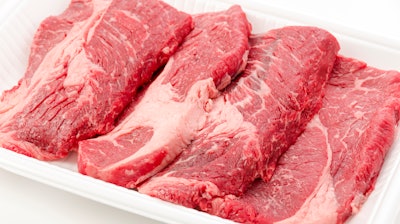
LOS ANGELES — The Terasaki Institute for Biomedical Innovation is excited to unveil their its spinout company, Omeat, an organization dedicated to technology for the sustainable production of beef and other meats on a global scale.
Omeat produces cultivated meat, using cost-effective, humane, and efficient methods to collect regenerative factors for cell cultivation from healthy, living cows.
The Omeat technology was initially conceived and developed by TIBI scientists four years ago, under the leadership of TIBI Director and CEO, Ali Khademhosseini, Ph.D., a world-renowned tissue engineer. The interdisciplinary Terasaki Institute, which endeavors to find solutions to critical health and environmental challenges, leveraged their expertise in tissue engineering and cell culturing techniques to develop key innovations in cultivated meat technology. These included the utilization of unique microcarriers for differentiating cell cultures and the usage of a fetal bovine serum alternative in their growth media, which is far cheaper, more readily available, and more easily prepared.
These innovations address some of the biggest challenges of standard beef production, which is currently implemented at highly detrimental costs to the environment. Studies have shown that alternative meat sources, such as meat cultivated from animal cells, produce 92% less global warming, 93% less air pollution and use up to 95% less land and 78% less water than with conventional meat production methods.
Omeat has gone a step further by establishing a sustainably maintained farm with herds of free-range cows as the biological source for their meat production, reducing their environmental footprint even further. They are also working to improve scalability in order to cut costs and minimize resources even further as they bring more products to the masses.
As studies have shown, public demand for ground beef is the highest among cultivated meat products, so Omeat beef satisfies the highest consumer need among meat products. In addition, the Omeat technology is versatile enough to produce any type of meat, such as pork, chicken, or fish, and it can also be established at already existing farms and ranches as well.
“Our first spinout company is well on the road to success and fulfills both environmental and consumer needs in a game-changing way,” said Khademhosseini. “With our multiple research platforms at TIBI, we hope to bring about additional spinout companies that address the biggest healthcare and environmental challenges.”
Omeat is currently building a pilot plant and rapidly expanding its team toward commercial readiness. In parallel, the company is in direct conversations with the Food and Drug Administration and United States Department of Agriculture toward regulatory approval.






















